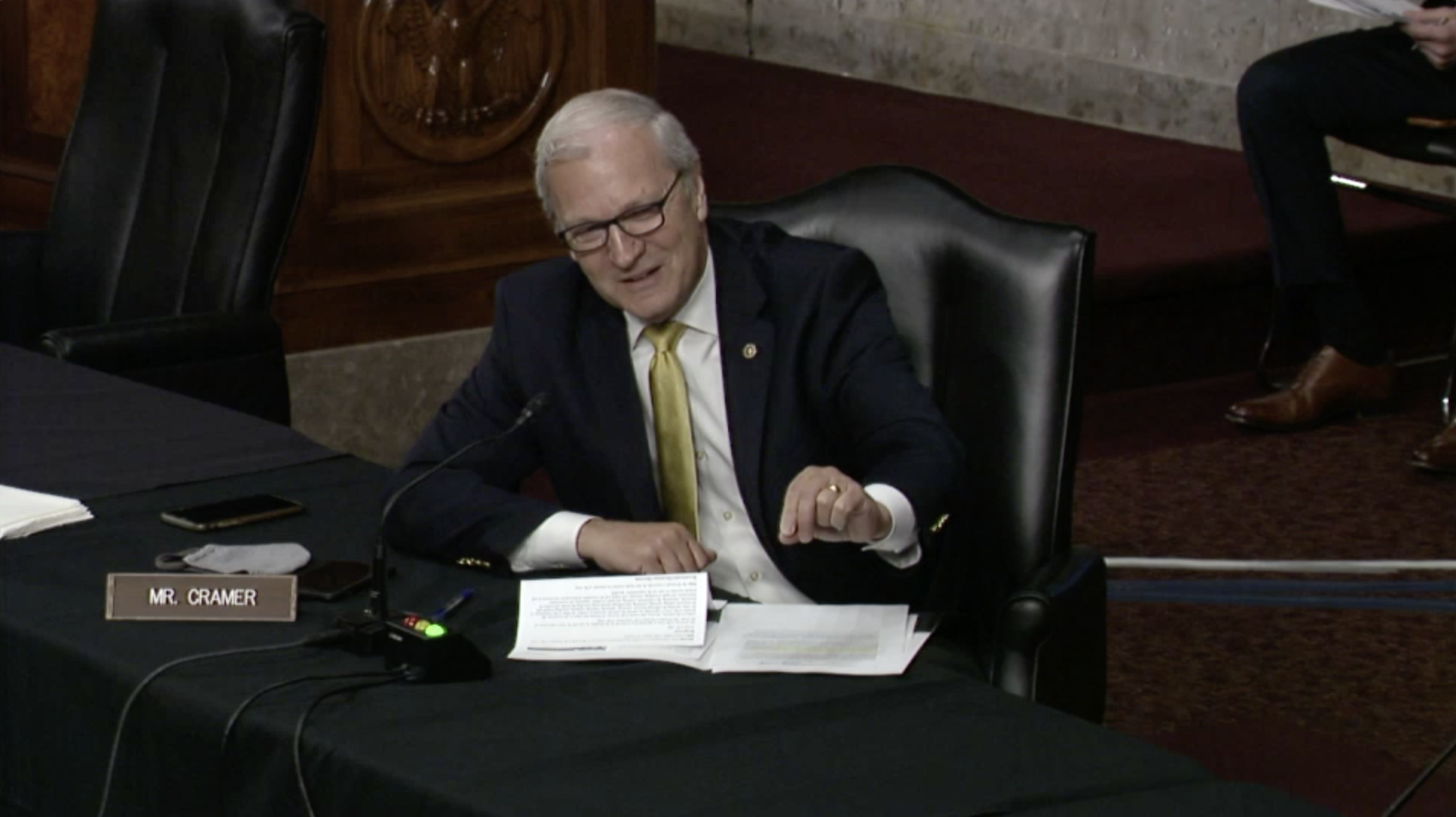***Click here to download video. Click here for audio.***
WASHINGTON – U.S. Senator Kevin Cramer (R-ND) questioned military leaders on the nation’s nuclear deterrence policy at a Senate Armed Services Subcommittee on Strategic Forces hearing this week. The senator began by observing the areas in the Defense Department’s budget where nuclear deterrence is at risk of being reduced and asking Deputy Assistant Secretary of Defense for Nuclear and Missile Defense Policy Leonor Tomero what the effects of that would be.
“I noted you are quoting the interim strategic policy in a couple of places relating to what seems to be a goal to reduce our nuclear deterrence,” said Senator Cramer. “I want to ask you, Ms. Tomero, how much risk are we willing to accept?”
“Having a high nuclear deterrence is one of our highest priorities,” said Ms. Tomero. “We will continue to maintain strong and reliable nuclear deterrence, which has been the cornerstone of our national security.”
Senator Cramer then asked General Timothy Ray, Commander of the Air Force Global Strike Command, what the military would do should there be a reduction in the Ground-Based Strategic Deterrent (GBSD) intercontinental ballistic missile (ICBM) program. The GBSD is the scheduled replacement for the Minutemen III ICBMs, which are housed at bases like Minot Air Force Base. Senator Cramer has been pushing senior military leaders to keep the GBSD timeline on track.
“If we were to go from 400 to 300 ICBMs, just as an example, would we need to shore up some other conventional system? How would we fill a gap if there was a reduction of some type?” asked Senator Cramer.
“I think there is the discipline that we all have to keep in light of what we’re dealing with, in particular with the Chinese growth,” responded General Ray. “The idea of putting bombers back on alert is something that we practice but we don’t sustain because we’ve been fortunate enough to live in an environment up to now where we can afford to not have them on alert but have them in a ready status.”
Senator Cramer concluded by asking if, although this year’s budget is still being crafted, there is a need for any additional reviews when it comes to nuclear deterrence efforts which would impact the amount of support that effort receives.
“There are certain things that have been studied to its limit, one of those things being the viability of the Minuteman III and the GBSD,” said Senator Cramer. “Is there any reason to believe that any additional reviews would do anything to overturn the mountain of evidence that supports the conclusion that’s already been drawn?”
“There is very strong support for modernization of the triad,” said Ms. Tomero. “That will be a high priority for our review for us to ensure that we continue to modernize the triad.”
